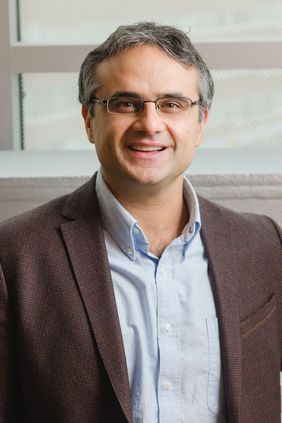Diet has a profound impact on tissue homeostasis and health in mammals. Adult stem cells mediate many aspects of tissue adaptation to this environmental influence. They ensure that a balance is established between self-renewal and differentiation in order to alter tissue composition as a response to the environment.
If adult stem cells respond in such a way to orchestrate tissue remodeling and some cancers are understood to arise from transformed stem cells, then it may be possible to conclude that organismal diet, stem cell function, and cancer initiation are interconnected. Yilmaz will present research findings from his group on this hypothesis showing how nutrition, metabolites and nutrient-sensing pathways instruct intestinal stem cell fate in homeostasis, adaptation to diet and diseases such as cancer.
Ömer Yilmaz is Associate Professor of Biology at the (USA) and a gastrointestinal pathologist at the Massachusetts General Hospital and Harvard Medical School. In 2014, he established his , which focuses on understanding how intestinal stem cells and their microenvironment adapt to diverse diets in the context of tissue regeneration, aging, and cancer initiation and progression. His work has been recognized, among others, with the Martin and Rose Wachtel Cancer Research Award of the American Association for the Advancement of Science.
Title of the talk: Dietary Control of Stem Cells in Physiology and Disease
When: Thursday, July 7, 2022, 4 p.m.
Where: FLI and online
Hosts: Claudia Waskow (Group Leader: Immunology of Aging) and Alessandro Ori (Group Leader: Aging of Protein Complexes), both FLI
The seminar will take place as a hybrid event. Access information will be shared prior to the seminar. For external guests: Please email Ivonne.Roeppnack-Jahnke@~@leibniz-fli.de for details.









